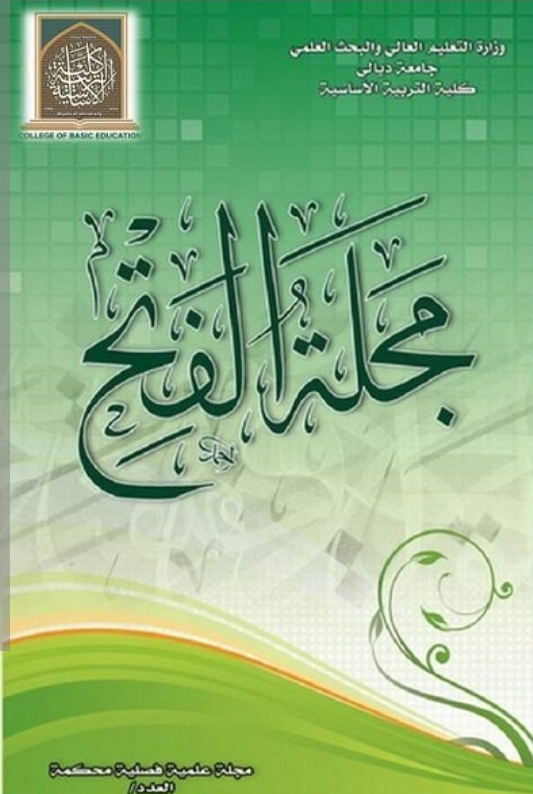Commitment to a tendency in the poem in the Arab Umayyad
Abstract
The Commitment Tendency in the Arabic Poem in the Umayyad Era Introduction: Arabic dictionaries agree on one meaning for the word (commitment). In Lisan al-Arab, the term is mentioned in the article (L-Z-M): Necessity is known. And the verb is necessary, it is necessary, the verb is necessary, and the object is: obligatory, the thing is necessary, it is necessary. And to adhere to it, the thing is bound and does not separate from it, and commitment: embracing (1). As for the idiomatic meaning of the concept of commitment, there is no specific definition that the researcher can be reassured about. The critic Nazik Al-Malaika summarized the subject of commitment in her saying: ((The writer in his production should not obey his individual motives, but it is necessary to portray the reality of society, and he must bring himself out to serve the collective)) (4). Hamid al-Mutabai defined it as ((that literature that depicts the inner feelings of a person and reflects them to the outside with a fine art, and the purpose of this art is to stir the latents in the recipient to complete the process of positive (human) interaction between the writer and the readers)) (5). Many critics thought that the concept of (commitment) leaked into Arabic literature in the aftermath of World War II, when the communists presented the problem of art to society, so literary commitment for them meant (commitment) to dialectical materialism alone. In the opposite direction, another commitment was born, i.e. the commitment of the Arab nationalists in the face of the communist commitment, then the idea of (commitment) was established among the Arab writers upon their acquaintance with (Paul Sartre) and (TS. Eliot), especially in his masterpiece (The Waste Land), The latter left a good impression on many Arab poets, and then many of them kept abandoning their commitment and focusing on their own and personal problems, after they were subjected to violent attack from the left and the right (6). Badr Shaker al-Sayyab divided literary commitment into two types: the first is communist commitment, and he called it commitment, and national (partisan) commitment, and the other: non-communist and non-partisan, emanating from the souls of writers who presented wonderful examples of committed literature (7). Just as the theme (commitment) was widely popular in the middle of the last century; As the Beiruti (Al-Adab) magazine adopted the promotion of this call, it faced harsh criticism from some Arab critics and scholars. Every writer is about himself without being lost)) (9).
Downloads
Published
How to Cite
Issue
Section
License

This work is licensed under a Creative Commons Attribution 4.0 International License.
حقوق النشر والترخيص
تطبق مجلة الفتح للبحوث التربوية والنفسية ترخيص CC BY (ترخيص Creative Commons Attribution 4.0 International). يسمح هذا الترخيص للمؤلفين بالاحتفاظ بملكية حقوق الطبع والنشر لأوراقهم. لكن هذا الترخيص يسمح لأي مستخدم بتنزيل المقالة وطباعتها واستخراجها وإعادة استخدامها وأرشفتها وتوزيعها ، طالما تم منح الائتمان المناسب للمؤلفين ومصدر العمل. يضمن الترخيص أن المقالة ستكون متاحة على نطاق واسع بقدر الإمكان وأن المقالة يمكن تضمينها في أي أرشيف علمي.
لمزيد من المعلومات، يرجى متابعة الرابط: https://creativecommons.org/licenses/by/4.0/.



